Understanding the CSRD: How does this affect business travel?
Sustainability reporting is no longer a nice-to-have—it’s a must-do. With the Corporate Sustainability Reporting Directive (CSRD) now in effect, businesses need to step up their ESG disclosures, including the impact of business travel.
CARBON FOOTPRINT
Charles Campbell
3/3/20257 min read


At Bizumi, our mission is to make business travel smarter, greener, and more efficient. As regulations around sustainability evolve, our role is not just to streamline your business travel but also to keep you informed about the changing landscape of corporate reporting and responsibility. A recent key development is the Corporate Sustainability Reporting Directive (CSRD). Below, we break down what CSRD is, when it came into effect, who it applies to, and what you need to know—whether you’re an SME or a large enterprise.
What Is the CSRD?
The Corporate Sustainability Reporting Directive (CSRD) is a European Union regulation aimed at enhancing transparency and accountability in the realm of corporate sustainability. It was formally adopted by the European Union in late 2022 and came into force on January 5, 2023, marking a pivotal shift in how businesses report their environmental, social, and governance (ESG) impact. Building on existing frameworks, the CSRD requires companies to disclose detailed information on their sustainability performance, ensuring they measure, report, and continuously improve their impact on the planet.
Who Needs to Pay Attention?
Traditionally, sustainability reporting obligations fell to large, publicly listed companies. However, the CSRD significantly broadens the scope. Over the next few years, many more organisations—including small and medium-sized enterprises (SMEs)—will be required to produce sustainability reports. If your business operates in the EU or has significant interactions with EU markets, it’s highly likely you’ll be impacted.
Large Enterprises
If you have over 250 employees and/or meet specific turnover or balance sheet thresholds, you’re definitely in scope. Even if your company already publishes sustainability reports, the CSRD introduces more rigorous standards with stricter external assurance.SMEs
While smaller businesses won’t be subject to the same immediate reporting deadlines, many will still have to comply eventually—particularly if they supply or partner with larger corporations already under CSRD obligations.
Because travel is often a major contributor to Scope 3 emissions, optimising corporate travel is a powerful way to meet your ESG goals.
Does this apply to the UK?
Although the CSRD is an EU-focused directive, it still has direct and indirect implications for UK-based organisations. Businesses with operations in EU member states, significant cross-border supply chains, or EU-based customers may be required to comply with these stricter reporting standards. Even outside of these immediate obligations, meeting CSRD-level expectations can help UK firms stay competitive and demonstrate commitment to transparency and sustainability—a priority that increasingly resonates with investors, clients, and other key stakeholders.
What needs to be reported?
Under the CSRD, organisations must detail a wide array of ESG (Environmental, Social, and Governance) metrics that demonstrate their overall sustainability performance. This typically includes total greenhouse gas emissions—encompassing Scope 1 (direct emissions), Scope 2 (energy-related indirect emissions), and increasingly important Scope 3 (other indirect emissions, such as those from business travel).
Companies are also required to report on broader environmental impacts (e.g., water usage, waste generation), social metrics, and governance factors. By compiling and disclosing this data, businesses can provide stakeholders with a comprehensive picture of their sustainability strategy and progress.
Key Takeaways for SMEs
1. Start Tracking Data Now
Even if your reporting deadline is a couple of years away, it pays to begin measuring relevant metrics—like carbon emissions from business travel—so you’re not scrambling later.
2. Leverage Simple Tools and Platforms
Adopting integrated solutions such as Bizumi will give you instant visibility into your travel-related carbon footprint. Automated insights simplify your eventual reporting process.
3. Collaborate with Larger Partners
If you’re part of a supply chain, those bigger companies may soon ask you for sustainability data. By building solid data-collection processes now, you’ll maintain key relationships and position yourself as a forward-thinking partner.
Considerations for Large Businesses
1. In-Depth Reporting Requirements
The CSRD moves beyond high-level disclosures, demanding detailed reporting on emissions, social factors, and governance practices—all subject to more rigorous external auditing.
2. Streamlined Sustainability Strategy
Because travel is often a major contributor to Scope 3 emissions, optimising corporate travel is a powerful way to meet your ESG goals. Platforms like Bizumi help reduce carbon output, control costs, and simplify data gathering.
3. Stakeholder Expectations
Customers, investors, and employees increasingly expect transparency. Being proactive about CSRD compliance can boost brand reputation and forge stronger stakeholder trust.
How Bizumi Can Help
Bizumi’s business travel planning and booking platform is built to help both SMEs and large enterprises align with evolving sustainability mandates. By taking the guesswork out of emissions and identifying lower carbon travel alternatives, we enable you to gather data efficiently for CSRD reporting while simultaneously reducing your organisations emissions.
Ready to Put These Insights Into Action?
Join our exclusive Bizumi pilot study to see how our platform can tailor solutions for your unique travel needs while preparing you for the future of sustainability reporting. Get in touch today to learn more and take your first step toward smarter, greener business travel.




At Bizumi, our mission is to make business travel smarter, greener, and more efficient. As regulations around sustainability evolve, our role is not just to streamline your business travel but also to keep you informed about the changing landscape of corporate reporting and responsibility. A recent key development is the Corporate Sustainability Reporting Directive (CSRD). Below, we break down what CSRD is, when it came into effect, who it applies to, and what you need to know—whether you’re an SME or a large enterprise.
What Is the CSRD?
The Corporate Sustainability Reporting Directive (CSRD) is a European Union regulation aimed at enhancing transparency and accountability in the realm of corporate sustainability. It was formally adopted by the European Union in late 2022 and came into force on January 5, 2023, marking a pivotal shift in how businesses report their environmental, social, and governance (ESG) impact. Building on existing frameworks, the CSRD requires companies to disclose detailed information on their sustainability performance, ensuring they measure, report, and continuously improve their impact on the planet.
Who Needs to Pay Attention?
Traditionally, sustainability reporting obligations fell to large, publicly listed companies. However, the CSRD significantly broadens the scope. Over the next few years, many more organisations—including small and medium-sized enterprises (SMEs)—will be required to produce sustainability reports. If your business operates in the EU or has significant interactions with EU markets, it’s highly likely you’ll be impacted.
Large Enterprises
If you have over 250 employees and/or meet specific turnover or balance sheet thresholds, you’re definitely in scope. Even if your company already publishes sustainability reports, the CSRD introduces more rigorous standards with stricter external assurance.SMEs
While smaller businesses won’t be subject to the same immediate reporting deadlines, many will still have to comply eventually—particularly if they supply or partner with larger corporations already under CSRD obligations.
Because travel is often a major contributor to Scope 3 emissions, optimising corporate travel is a powerful way to meet your ESG goals.
Does this apply to the UK?
Although the CSRD is an EU-focused directive, it still has direct and indirect implications for UK-based organisations. Businesses with operations in EU member states, significant cross-border supply chains, or EU-based customers may be required to comply with these stricter reporting standards. Even outside of these immediate obligations, meeting CSRD-level expectations can help UK firms stay competitive and demonstrate commitment to transparency and sustainability—a priority that increasingly resonates with investors, clients, and other key stakeholders.
What needs to be reported?
Under the CSRD, organisations must detail a wide array of ESG (Environmental, Social, and Governance) metrics that demonstrate their overall sustainability performance. This typically includes total greenhouse gas emissions—encompassing Scope 1 (direct emissions), Scope 2 (energy-related indirect emissions), and increasingly important Scope 3 (other indirect emissions, such as those from business travel).
Companies are also required to report on broader environmental impacts (e.g., water usage, waste generation), social metrics, and governance factors. By compiling and disclosing this data, businesses can provide stakeholders with a comprehensive picture of their sustainability strategy and progress.
Key Takeaways for SMEs
1. Start Tracking Data Now
Even if your reporting deadline is a couple of years away, it pays to begin measuring relevant metrics—like carbon emissions from business travel—so you’re not scrambling later.
2. Leverage Simple Tools and Platforms
Adopting integrated solutions such as Bizumi will give you instant visibility into your travel-related carbon footprint. Automated insights simplify your eventual reporting process.
3. Collaborate with Larger Partners
If you’re part of a supply chain, those bigger companies may soon ask you for sustainability data. By building solid data-collection processes now, you’ll maintain key relationships and position yourself as a forward-thinking partner.
Considerations for Large Businesses
1. In-Depth Reporting Requirements
The CSRD moves beyond high-level disclosures, demanding detailed reporting on emissions, social factors, and governance practices—all subject to more rigorous external auditing.
2. Streamlined Sustainability Strategy
Because travel is often a major contributor to Scope 3 emissions, optimising corporate travel is a powerful way to meet your ESG goals. Platforms like Bizumi help reduce carbon output, control costs, and simplify data gathering.
3. Stakeholder Expectations
Customers, investors, and employees increasingly expect transparency. Being proactive about CSRD compliance can boost brand reputation and forge stronger stakeholder trust.
How Bizumi Can Help
Bizumi’s business travel planning and booking platform is built to help both SMEs and large enterprises align with evolving sustainability mandates. By taking the guesswork out of emissions and identifying lower carbon travel alternatives, we enable you to gather data efficiently for CSRD reporting while simultaneously reducing your organisations emissions.
Ready to Put These Insights Into Action?
Join our exclusive Bizumi pilot study to see how our platform can tailor solutions for your unique travel needs while preparing you for the future of sustainability reporting. Get in touch today to learn more and take your first step toward smarter, greener business travel.






